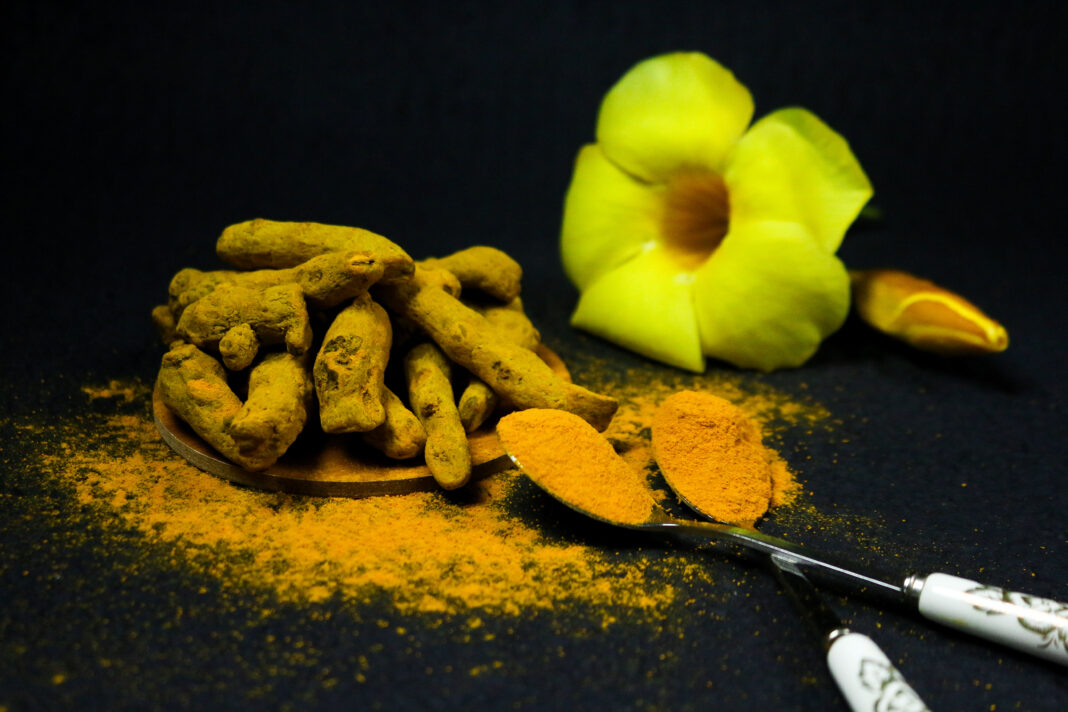Turmeric is a spice that comes from the root of the curcuma longa plant, which belongs to the ginger family. It has been used for centuries in India and other Asian countries as a culinary ingredient, a natural dye, and a traditional medicine. Turmeric is best known for its bright yellow color and its distinctive flavor, which adds warmth and depth to dishes like curry, soup, and rice. But turmeric is more than just a spice. It also contains powerful compounds that have various health benefits for your body and brain.
One of these compounds is curcumin, which is the main active ingredient in turmeric. Curcumin is responsible for most of the medicinal properties of turmeric, as it has anti-inflammatory, antioxidant, anticancer, antiviral, antibacterial, and antifungal effects. Curcumin can also modulate many molecular pathways that are involved in chronic diseases, such as diabetes, heart disease, Alzheimer’s disease, and arthritis.
Turmeric -- a miraculous gift from nature, is not only a colorful and flavorful ingredient, but also a natural and powerful medicine.
However, curcumin is not easily absorbed by your body. To increase its bioavailability (the rate at which your body absorbs a substance), you need to consume it with black pepper, which contains a substance called piperine. Piperine can enhance the absorption of curcumin by up to 2,000%. You can also take curcumin supplements that contain piperine or other ingredients that improve its solubility and stability.
Here are some of the proven health benefits of turmeric and curcumin:
- They can reduce inflammation. Inflammation is a natural response of your immune system to fight infections and injuries. However, when inflammation becomes chronic and affects your own tissues, it can lead to various health problems. Curcumin can suppress the activity of inflammatory molecules and cells, such as cytokines, NF-kB, COX-2, and TNF-alpha. This can help prevent or treat conditions like rheumatoid arthritis, ulcerative colitis, inflammatory bowel disease, and asthma.
- They can protect your cells from oxidative stress. Oxidative stress is caused by an imbalance between free radicals (unstable molecules that can damage your cells) and antioxidants (molecules that can neutralize free radicals). Oxidative stress can contribute to aging and many chronic diseases. Curcumin can act as a potent antioxidant that can scavenge free radicals and boost your own antioxidant defenses. This can help prevent or delay the onset of diseases like cancer, diabetes, neurodegenerative disorders, and cardiovascular diseases.
- They can improve your brain function and mood. Curcumin can cross the blood-brain barrier and affect your brain cells directly. It can increase the levels of brain-derived neurotrophic factor (BDNF), a protein that promotes the growth and survival of neurons. This can enhance your learning ability, memory, and cognitive function. Curcumin can also modulate the levels of neurotransmitters like serotonin and dopamine, which are involved in regulating your mood. This can help alleviate depression and anxiety.
- They can lower your risk of heart disease. Heart disease is the leading cause of death worldwide. Curcumin can improve several risk factors for heart disease, such as high blood pressure, high cholesterol, high blood sugar, and inflammation. Curcumin can also improve the function of your endothelium (the lining of your blood vessels), which regulates blood flow and clotting. Moreover, curcumin can prevent the oxidation of LDL (bad) cholesterol, which can form plaques in your arteries.
- They can prevent or treat some types of cancer. Cancer is characterized by the uncontrolled growth and spread of abnormal cells. Curcumin can interfere with various processes that are essential for cancer development and progression, such as cell proliferation, angiogenesis (the formation of new blood vessels), invasion (the penetration of cancer cells into surrounding tissues), metastasis (the spread of cancer cells to other organs), and apoptosis (the programmed cell death). Curcumin can also enhance the effectiveness of chemotherapy and radiation therapy by sensitizing cancer cells to these treatments.
These are just some of the many health benefits of turmeric and curcumin. However, more research is needed to confirm their safety and efficacy in humans. Before taking turmeric or curcumin supplements, you should consult your doctor first. Turmeric may interact with some medications or cause side effects in some people. For example, turmeric may thin your blood or worsen gallbladder problems. The recommended dosage of curcumin varies depending on the condition you want to treat. Generally speaking, you should not exceed 8 grams per day.
Turmeric is a spice that can spice up your health. By adding it to your diet or taking it as a supplement, you can enjoy its many benefits for your body and brain. Turmeric is not only a colorful and flavorful ingredient, but also a natural and powerful medicine.
A global media for the latest news, entertainment, music fashion, and more.





